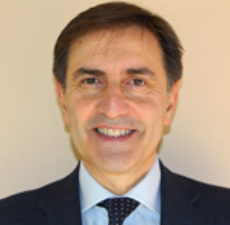
We host the interview performed with dr. Nicola Fazio, Director of the Unit of Gastrointestinal Medical Oncology and Neuroendocrine Tumors of the European Institute of Oncology (IEO), who describes his experience with narrative medicine.
1) Does the reading of the patient’s stories with NET (neuroendocrine tumor) gives to you more information than those usually reachable? Which ones?
The reading of a narration gives certainly more information than tthose that we usually pick up in our daily clinical practice. Two are the fundamental reasons: the former is that the narration allows the patient to express himself /herself about points that usually aren’t touched during the medical visits; the latter is that sometimes we, as doctors, are more focused on the technical side than on the caring side, in other words, more on the disease than on the patient. The story allows the patient to talk about his/her way of living the illness in a whole mode, and at the same time allows the doctor to get a wider horizon than that one generally achievable during the medical visit.
Our work as oncologists it’s focused on curing the patient who lives with the cancer and with the therapies. In this context, the oncologist has the target of giving to the patient an acceptable daily living, make the patient living, not surviving. It’s not standardisable the daily living with the disease and therapies, but it’s strictly individual. In this perspective, the narration provides to the physician the main features to understand if the chosen care is giving to the patient the clinical benefit. Costraining ourselves to the technical aspects, like laboratory or instrumental data, that the patient deals with periodically, could give a false idea of clinical benefit. A cancer under control with the therapy in a patient who lives in poor conditions, due to the disease or the therapies or both, doesn’t correspond to the idea of clinical benefit. The target of the anti-tumour chronic care it’s the daily living of the patient, thus it’s natural to think that the narration it’s an additional tool to supervise the outcomes of cares.
2) Has Narrative medicine a potential use in the daily clinical practice?
Yes, I think, even if I can barely imagine that it could be inserted into a medical visit. It’s not easy to make the patient comfortable to narrate himself/herself and this requires time. Anyway it’s a real demand, proved for instance by the fact that in our second opinion clinics often the patient shows the need to became aware of his/her own situation rather than knowing which other therapies could receive for treating the disease. This shows a lack of a wider dialogue between doctor and patient and therefore a lack of narrative medicine. Hence, the narration should be provided at regular intervals during the patient’s journey in the chronic oncological care.
We should establish before precise moments for assessing the patient’s situation during a chronic care. Like at any three months a CT-scan is required, at any three months the patient could narrate himself/herself and allowing us doctors to make us understand the way he’s/she’s living the situation. This surely require more time and motivation from the physicians, but I think that it’s workable with the right planning.
However the patient has to be informed that the target of the care it’s his/her daily living, otherwise if you ask him/her what is the target of the care we risk to hear the answer “stop the cancer”. This is an half-answer, because hi/she should consider also “with a good quality of life”. If chronically ceasing the tumour is related to a chronic state of pain, the target of quality of life could get lost together with the global target of cares. In the daily clinical practice the time and the mode that we, as oncological doctors, use to monitor the evolution of the disease and of the patient are often arbitrary and unilateral. We are those who interview the patient with our background and we deduce about the base of probability tables that have the arrogance of objectify the symptoms. As it has been shown from the project of narrative medicine of patients with NET, patients stories are a powerful tool of rievaluation during the care relation.
3) Do you think that the health professionals should have the chance to apply narrative medicine during the visit? How?
I don’t think that narrative medicine it’s applicable during the time of one medical visit, at least for two fundamental reasons: 1) during the visit time has an important role and instead the narration requires time, patience, serenity and availability; 2) the medical planning of diagnosis, therapy and evaluations it’s rather unidirectional; it’s the physician who imposes and drives, while the patient takes part in a passive way. Narrative medicine requires that patient has the ideal conditions to narrate himself/herself, not to be subjected to temporal or planning restrictions; we need a tailor-made visit, that could find room in periodic temporal intervals, maybe in conjunction with the instrumental evaluation of the disease.
4) Do you believe that narrative medicine could be used in the physicians and health professionals formation? Why?
Yes, not for all the specialities, but surely for the medical oncology. Some doctors consider narrative medicine like something outside their “jurisdiction”, that concern different specialities: psychology, palliative cares. The education of the oncological doctor seems more oriented to the care of the cancer than to the care of the patient. Narrative medicine it’s not perceived as an useful tool to improve care of the patient and therefore it is not searched for. I believe, instead, that it should be included into the academic education system, at least in the clinical specialties. A clinician who manages patients during chronic therapies should have fundamentals of narrative medicine. Knowing more about the patient, going beyond the result of the CT-scan means to understand if the patient is taking really advantage from our cares.
